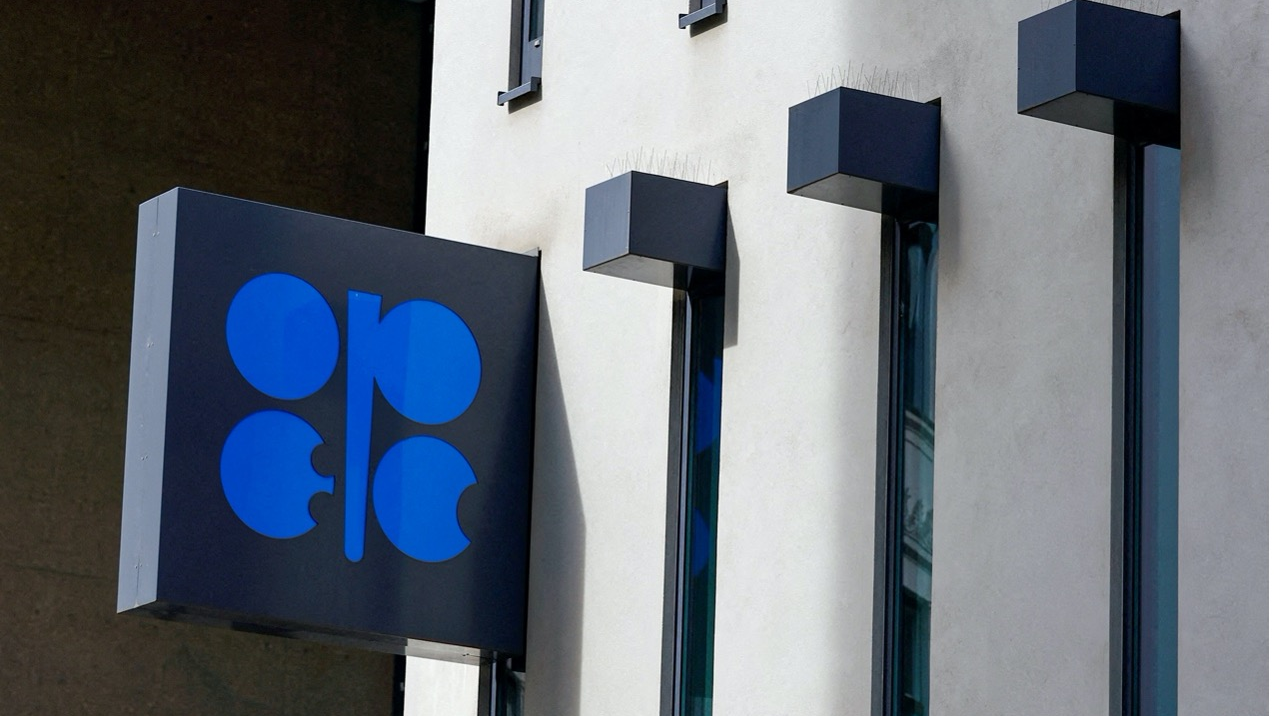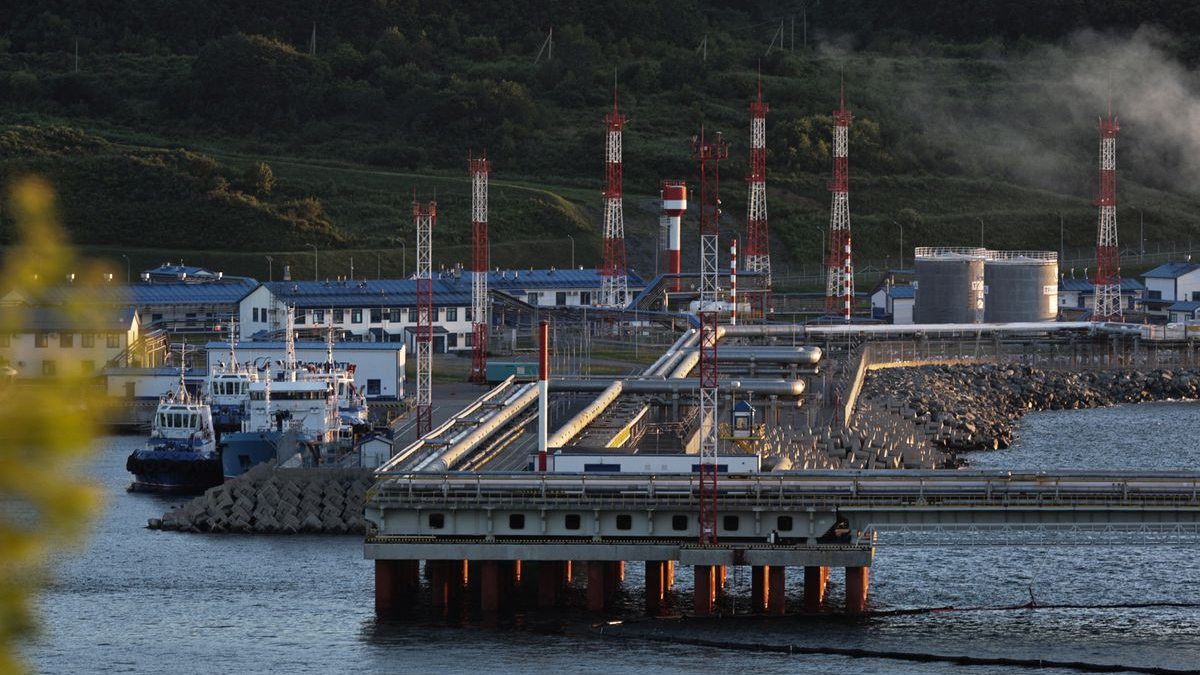
An OPEC sign is seen on the day of OPEC+ meeting in Vienna, Austria. /Reuters
An OPEC sign is seen on the day of OPEC+ meeting in Vienna, Austria. /Reuters
The Organization of the Petroleum Exporting Countries and its allies (OPEC+) agreed to stick to its oil output targets at a virtual meeting on Sunday.
The decision comes two days after the Group of Seven (G7) nations and Australia agreed to cap the price of Russian seaborne crude oil at $60 a barrel.
The price cap aims to limit Russia's income from selling oil and prevent a spike in global oil prices. It is set to take effect on December 5, the same day that the EU will impose a boycott on most Russian crude.
Under the price cap, non-EU countries can continue to import Russian crude, but shipping, insurance and reinsurance companies are not allowed to handle cargoes of Russian crude around the globe, if it is sold at a price above that threshold.
European Commission President Ursula von der Leyen said on Twitter that the price cap would largely reduce Russia's revenues, as well as help to stabilize global energy prices and benefit emerging economies globally.
Russia says it won't accept an oil price cap and is preparing a response.
Kremlin spokesman Dmitry Peskov claimed that the country had made preparations for the price cap by G7 nations, the EU and Australia, the Russian state news agency TASS reported.
Meanwhile, Kirill Melnikov, head of the Energy Development Center, told TASS that the global oil price could exceed $100 amid the introduction of the price cap. Other analysts said the EU is jeopardizing its own energy security.
"Starting from this year Europe will live without Russian oil," said Mikhail Ulyanov, Moscow's ambassador to international organizations in Vienna on Twitter on Saturday.
"Moscow has already made it clear that it will not supply oil to those countries who support anti-market price cap. Very soon the EU will blame Russia for using oil as a weapon," he said.

A view shows the crude oil terminal Kozmino on the shore of Nakhodka Bay near the port city of Nakhodka, Russia, August 12, 2022. /Reuters
A view shows the crude oil terminal Kozmino on the shore of Nakhodka Bay near the port city of Nakhodka, Russia, August 12, 2022. /Reuters
Global oil market faces uncertain future
EU countries have disputed for days over the issue of putting a price cap on Russian crude oil, as Poland, Lithuania and Estonia rejected the higher price of $65-70 per barrel, saying it cannot effectively reduce Russia's revenue from oil import.
In early October, OPEC+ agreed to reduce production by 2 million barrels per day, about 2 percent of world demand, from November until the end of 2023. The decision came even though the U.S. has been calling OPEC+ to produce more to lower the oil price.
"The price cap will encourage the flow of discounted Russian oil onto global markets and is designed to help protect consumers and businesses from global supply disruptions," said U.S. Secretary of the Treasury Janet Yellen in a statement on December 2nd.
It will particularly benefit low- and medium-income countries who have already borne the brunt of elevated energy and food prices, she added.
The U.S. joined European allies to impose economic sanctions on Russia, after the crisis escalated when Russia launched a "special military operation" in February.
In comments published on Telegram, Russia's embassy in the U.S. criticized the price cap as a "dangerous" move, saying Moscow would continue to find buyers for its oil.
Russia, the world's second-largest oil producer, has shifted much of its supply to Asian countries.
Analysts are concerned about the uncertainty in the global oil market in the next period.
With the global economy slowing down, oil prices have been falling in recent months. However, the two measures including the price cap and EU boycott on Russian crude could "take an unknown amount of Russian oil off the global market", wrote AP Business Writers, adding that it will tighten supply and drive up prices.
Analysts at Commerzbank also say that the EU embargo and cap together could result in "a noticeable tightening on the oil market in early 2023."
However, other experts said a $60 cap will not have much impact on Russia's finances.
The price cap "will almost go unnoticed," as it would be near where Russian oil is already selling, Simone Tagliapietra, an energy policy expert at the Bruegel think tank in Brussels told AP.
"Up front, the cap is not a satisfying number," said Tagliapietra, adding that at least it could restrain Russia from profiting if the oil price spikes.
(With input from Reuters and AP)